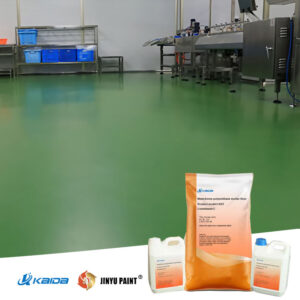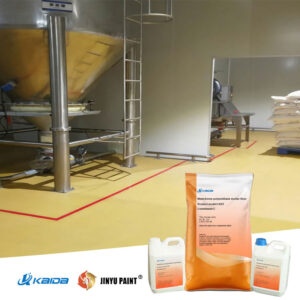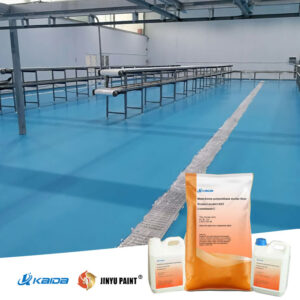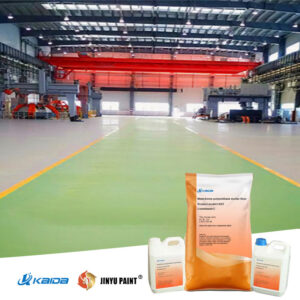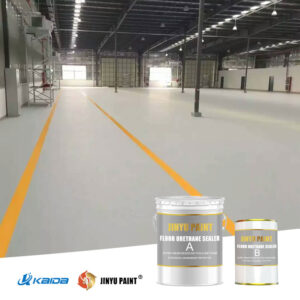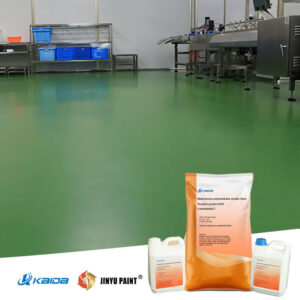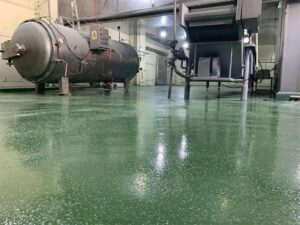
Flooring For Food & Beverage Processing Facilities
Current flooring issues in the food industry:
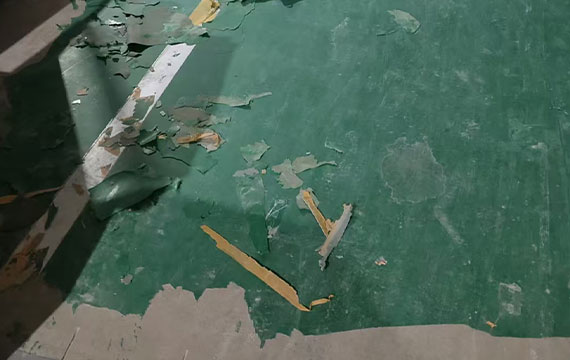

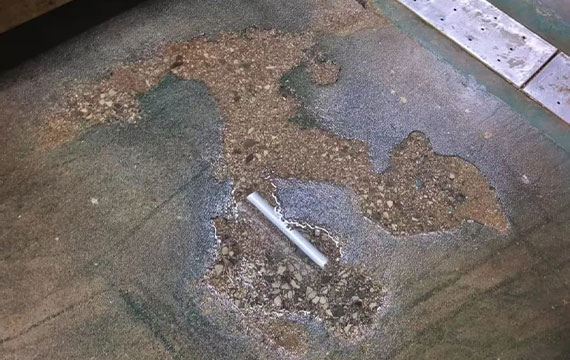
How to Choose Flooring Materials for the Food Industry


Food & Beverage Flooring Benefits
JINYU PAINT® water-based urethane mortar flooring is a high-performance system combining polyurethane resin with premium inorganic aggregates, perfectly meeting all requirements for food-grade flooring in the food industry.
Applications: Perfect for food processing plants, central kitchens, beverage production, dishwashing facilities, slaughterhouses, medical facilities, cold storage, and chemical-resistant industrial flooring.

Antimicrobial & Non-Toxic
Featuring antibacterial properties that effectively inhibit microbial growth, this formaldehyde-free flooring complies with HACCP standards, making it ideal for food processing areas.

Chemical Resistance
JINYU PAINT® mortar meets GB/T 22374-2018 standards and demonstrates strong resistance to acetic acid, lactic acid, oleic acid, citric acid, and sodium hydroxide. Its chemical-resistant flooring properties ensure a service life exceeding 30 years, even in harsh environments.

Fast Installation
Can be applied in low temperatures and becomes operational within 24 hours after installation, significantly reducing downtime for food facility flooring renovations.

Durability
Long-term durability depends on three key factors: toughness, corrosion resistance, and impact resistance. KAIDA PAINT selects only the finest aggregates to ensure extreme wear resistance, which is why our JINYU® waterbase polyurethane mortar delivers superior longevity.

Easy to Clean
Easy-to-clean floors and walls haveproperties that resist the absorptionof material into the surface, makingfor a less laborious process duringcleanup.


The Importance of
Cleanroom Facilities in the Food Industry
Why Polyurethane Flooring System
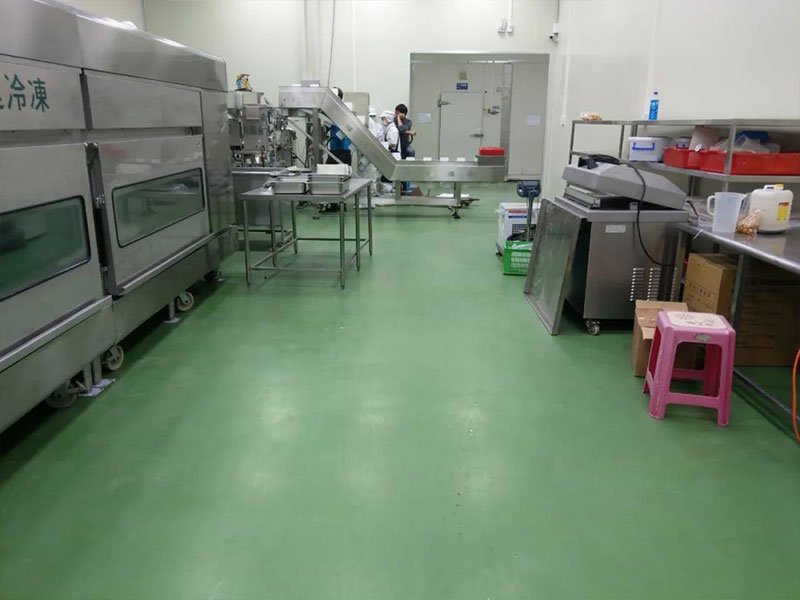
KAIDA PAINT®
The Premier Choice for Food-Grade Industrial Flooring
Food Processing Flooring Projects

Application Products
-

WPU100 Water-based Polyurethane Floor Finish
Läs mer på engelska -

WPU100 Högblank klar vattenbaserad polyuretanlack
Läs mer på engelska -

Self-leveling Heavy-duty Anticorrosive Polyurethane Concrete Floor Coating
Läs mer på engelska -

PU3600 Polyurethane Ultra Abrasion Resistant Finish
Läs mer på engelska -

JINYU® UD 9-12mm Heavy-Duty Anti-Slip Polyurethane Concrete Floor Paint
Läs mer på engelska -

JINYU® SL Self-Leveling Urethane Floor Coating Semi-Gloss Finish
Läs mer på engelska -

JINYU® MF 4-6mm Polyurethane Paint For Concrete Floors
Läs mer på engelska -

JINYU® HD Heavy-Duty Urethane Floor Coating
Läs mer på engelska -

JINYU® DT Abrasion-Resistant PU Topcoat
Läs mer på engelska -

JINYU PAINT® MF Self-leveling PU Screed Flooring System
Läs mer på engelska -

E820 Epoxy Self-Leveling Intermediate Floor Coat
Läs mer på engelska -

E811-2 Solvent-Free Epoxy Floor Primer Mid Coating
Läs mer på engelska
BEGÄRA EN ÅTERUPPRINGNING
För skräddarsydda lösningar för industrigolv, kontakta KAIDA® JINYU PAINT® idag.
Vi erbjuder kostnadsfri rådgivning utan förpliktelser och kan ge en prisuppskattning vid första kontakten.
- +86-158-229-255-23(whatsapp)
- kaida@jinyupaint.com
VANLIGA FRÅGOR
- Soybean Processing Flooring Solutions: Why Urethane Mortar is the Industry Standard
- Building a Fortress for Pet Food Safety: Why Specialized Pet Food Plant Flooring is Essential
- Pharmaceutical Flooring Guide: Why Urethane Mortar is the Top Choice for GMP Facilities
- Den ultimata guiden till golv för livsmedelsbearbetning: Revolutionera produktionen av färdiglagad mat med Urethane Mortar Systems
- Den ultimata golvlösningen för fisk- och skaldjursindustrin -KAIDA JINYU® levererar högpresterande golv
Kontakta oss
Kontaktpersoner: Sabella Wei
Telefon: 86-022-83859963
Whatsapp: 15822925523




